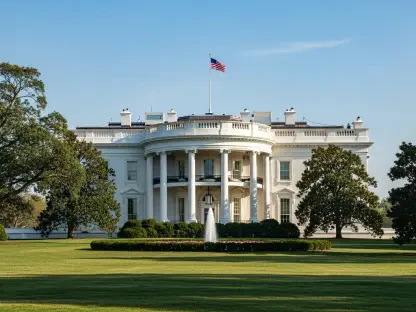Introduction to Turkey’s Crypto Regulation Drive
Imagine a nation where the local currency has plummeted so drastically that citizens are turning to digital assets as a lifeline, with Bitcoin’s value skyrocketing over 40 times in just a few years, reflecting the dire economic situation in Turkey. Amid this digital gold rush, the government faces a daunting challenge: how to harness the benefits of this financial revolution while curbing the risks of money laundering and illicit activities. This report delves into Turkey’s evolving cryptocurrency landscape, exploring the rapid growth of digital assets and the stringent anti-money laundering (AML) measures being implemented to ensure oversight and stability in a volatile economic environment.
Turkey’s Cryptocurrency Landscape
Turkey has emerged as a significant hub for cryptocurrency activity, driven by a unique blend of economic necessity and technological curiosity. The nation ranks among the top globally for crypto adoption, with millions of citizens engaging in transactions to safeguard their wealth against rampant inflation. Major exchanges have established a strong foothold, facilitating high volumes of trades and contributing to the mainstreaming of digital currencies within the financial ecosystem.
The depreciation of the Turkish lira has acted as a catalyst for this trend, pushing individuals and businesses to explore alternatives like Bitcoin and stablecoins. These digital assets offer a perceived safety net, preserving value in a way the local currency no longer can. As a result, the crypto market has seen exponential growth, with exchanges becoming pivotal players in providing access and liquidity to a burgeoning user base.
Beyond market dynamics, the cultural acceptance of technology in Turkey has further accelerated this shift. Younger demographics, in particular, view cryptocurrencies as not just an investment but a practical solution to everyday financial challenges. This widespread embrace underscores the critical role digital assets now play in the country’s economic fabric, setting the stage for regulatory scrutiny.
Driving Forces Behind Crypto Adoption in Turkey
Economic Instability and Digital Asset Trends
The dramatic decline of the Turkish lira stands as the primary driver behind the surge in cryptocurrency use. With inflation rates soaring, many citizens have lost confidence in traditional financial systems, turning instead to digital assets as a hedge against economic uncertainty. This shift reflects a broader trend where cryptocurrencies are no longer niche but a mainstream tool for wealth preservation.
Stablecoins, pegged to more stable fiat currencies like the US dollar, have gained particular traction as a reliable medium of exchange. Their popularity highlights a growing preference for assets that offer stability amid local currency volatility. Meanwhile, Bitcoin is increasingly seen as a store of value, often likened to digital gold in public perception.
This pivot toward digital solutions also reveals a deeper transformation in financial behavior. As trust in conventional banking wanes, Turks are exploring decentralized systems that promise greater autonomy over their finances. This evolving mindset continues to reshape the economic landscape, necessitating robust frameworks to address emerging risks.
Market Growth and Adoption Metrics
Data on cryptocurrency usage in Turkey paints a striking picture of growth, with Bitcoin’s price in lira terms escalating dramatically over recent years. Transaction volumes on major exchanges have surged, reflecting a robust appetite for digital assets across diverse user groups. Reports suggest that a significant percentage of the population now holds some form of cryptocurrency, a trend showing no signs of slowing.
Demographically, the user base spans a wide range, though younger, tech-savvy individuals dominate the space. Urban centers report higher adoption rates, driven by better access to technology and financial education. Projections indicate that from the current year onward, the sector could see even greater expansion as infrastructure improves and public awareness grows.
Looking ahead to 2027, analysts anticipate a sustained increase in both user numbers and transaction values, fueled by ongoing economic pressures. This growth trajectory underscores the urgency of establishing clear regulatory guidelines to manage the scale and complexity of the market. Such metrics highlight Turkey’s position as a critical case study in global crypto adoption patterns.
Challenges in Regulating Cryptocurrencies in Turkey
Regulating cryptocurrencies in Turkey presents a multifaceted challenge, primarily due to the inherent risks of money laundering and terrorist financing. The anonymity and borderless nature of digital transactions make them attractive for illicit activities, posing significant hurdles for authorities striving to maintain financial integrity.
A specific issue compounding these risks is the misuse of “rented accounts,” where individuals lend their credentials for transactions, often unknowingly facilitating fraud or other crimes. This practice, coupled with the decentralized structure of many cryptocurrencies, complicates efforts to trace and monitor suspicious activities effectively.
To address these concerns, strategies such as enhanced user verification and transaction tracking are under consideration. However, implementing such measures without stifling innovation remains a delicate balance. The government must navigate these complexities to protect the financial system while ensuring that legitimate users are not unduly burdened by overregulation.
Turkey’s New AML Legislation and Enhanced Oversight
In response to these challenges, Turkey is rolling out comprehensive AML legislation aimed at tightening control over cryptocurrency transactions. The Financial Crimes Investigation Board, known as MASAK, is being granted expanded powers to freeze accounts and blacklist crypto wallets suspected of involvement in illicit activities. This marks a significant step toward aligning with international standards set by the Financial Action Task Force (FATF).
Crypto exchanges face new mandates under this framework, including the obligation to collect detailed data on the source and purpose of transactions. Potential restrictions on stablecoin transfers are also on the table, reflecting concerns over their use in bypassing traditional financial oversight. These requirements aim to enhance transparency and reduce the risk of financial crime within the digital asset space.
Additionally, the Capital Markets Board (CMB) has taken proactive measures by blocking unauthorized platforms, signaling a zero-tolerance approach to non-compliance. This coordinated effort between MASAK and CMB underscores a broader commitment to creating a secure environment for investors. By enforcing these regulations, Turkey seeks to mitigate systemic risks while fostering trust in its evolving financial markets.
Future Implications for Turkey’s Crypto Sector
The introduction of stringent AML rules is poised to reshape Turkey’s cryptocurrency industry in profound ways. Investor behavior may shift as compliance costs rise for exchanges, potentially leading to consolidation among smaller players unable to meet regulatory demands. Market dynamics could also evolve, with a possible slowdown in speculative trading due to increased oversight.
Balancing innovation with security remains a critical concern as these policies take effect. While the measures aim to safeguard the financial system, they must avoid stifling the entrepreneurial spirit driving crypto adoption. Turkey’s alignment with global norms offers a pathway to international credibility, but it also requires careful calibration to maintain a competitive edge in the digital economy.
External factors, such as global economic conditions, will further influence the sector’s trajectory. As digital assets become integral to financial strategies worldwide, Turkey’s ability to adapt its regulatory framework will be crucial. The coming years will test whether these AML initiatives can support sustainable growth without alienating a significant portion of the crypto community.
Reflecting on Turkey’s Regulatory Path
Looking back, Turkey’s journey to strengthen AML rules for cryptocurrency oversight reveals a determined effort to tackle financial crime head-on. The expansion of MASAK’s authority and the imposition of rigorous standards on exchanges demonstrate a proactive stance in a rapidly changing landscape. These steps address immediate risks while laying the groundwork for long-term stability.
Moving forward, the focus should shift to refining these regulations through continuous dialogue with industry stakeholders. Encouraging innovation via sandbox programs or pilot projects could help test new solutions without compromising security. Additionally, investing in public education about safe crypto practices would empower users and reduce vulnerabilities.
Ultimately, Turkey’s experience offers valuable lessons for other nations grappling with similar challenges. By prioritizing collaboration between regulators and the private sector, alongside a commitment to international alignment, the country paves the way for a more resilient financial future. The next phase must build on this foundation, ensuring that digital assets remain a tool for economic empowerment rather than a conduit for illicit activity.









